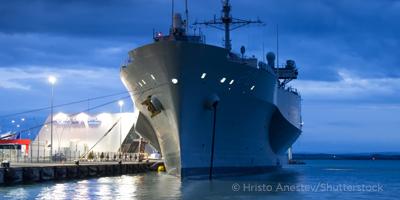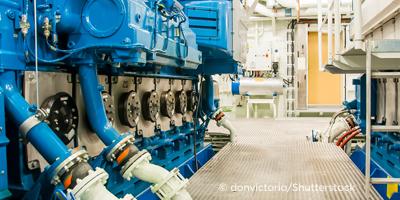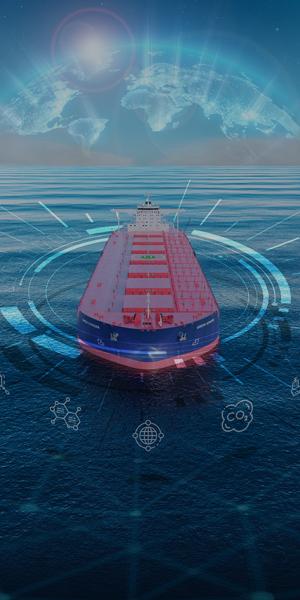Quick Links
- Rules and Resources
-
Services
Quick Links
Sustainability and Decarbonization- Energy Efficiency Existing Ship Index (EEXI)
- Sustainability Reporting and Assurance
- Simulation-based Energy Efficiency Evaluation Service (SIM EEE)
- Greenhouse Gas (GHG) Rating Improvement
- Greenhouse Gas Inventory and Carbon Accounting
- Carbon Capture, Utilization, and Storage (CCUS)
- Alternative Fuel Options
- Alternative Power Sources
- Marine Sustainability
- Offshore Sustainability
- Green Shipping Corridors
- Methanol Value Chain
- Gas
- Carbon Intensity Indicator (CII)
- Ammonia Value Chain
- Carbon Diligence Platform
- Marine Sustainability
-
Innovation and Technology
Quick Links
-
News and Events
Quick Links
-
About
Quick Links

- Rules and Resources
- Services
- Innovation and Technology
- News and Events
- About Us and Careers
- Rules and Resources
- Rules and Guides
- Regulatory Updates
- Advisories and Debriefs
- Flag and Port State
- Engineering Software
- Engineering Reviews
- ABS MyFreedom™ Portal
- Databases
- Forms
- Services
- Classification
- Approval and Certification
- Company and Ship Audits
- Global Marine
- Global Offshore
- Global Offshore Wind
- Global Government
- Sustainability and Decarbonization
- Digital Solutions
- Cybersecurity
- Maritime Training
- Innovation and Technology
- Technology Advancement
- Academic Engagement
- Industry Partnerships
- Data and Digitalization
- Knowledge Center
- About Us and Careers
- Who We Are
- Safety
- Careers
- Contact Us
ABS Publishes Fuel Cell Guidance to Support Industry Decarbonization Objectives
(HOUSTON) ABS published its Guide for Fuel Cell Power Systems for Marine and Offshore Applications to support the design, evaluation, and construction of fuel cell systems on vessels and offshore assets.
“As technology evolves and regulators challenge shipping to decarbonize, fuel cells are increasingly seen as having an important role to play in meeting that challenge,” said Gareth Burton, ABS Vice President, Technology. “ABS has in-depth experience in assisting vessel owners and operators in low carbon emission options. Now is the right time to support the industry with guidance on compliant and efficient application of fuel cell power.”
The Guide, which covers all fuel cell types, focuses on the use of fuel cell systems and arrangements for propulsion and auxiliary systems both in new-build and retrofit projects while maintaining key safety principles.
Upon Owner’s request, the optional notation FC-E (Essential Service) or FC-NE (Non-Essential Service) may be granted once the fuel cell installation has complied with the requirements of the Guide, which have been developed considering the latest draft Interim Guideline to the International Code of Safety for Ships using Gases or other Low-flashpoint Fuels (IGF Code).
ABS has just completed a joint development project with Daewoo Shipbuilding & Marine Engineering Co., Ltd. to investigate the use of hybrid solid oxide fuel cell and gas turbine generator technology and to explore its potential installation on board future generations of LNG carriers. This theoretical work demonstrated high efficiency of electricity and heat co-generation.
Mr. Il-Guk Woo, DSME Vice President, Naval & Energy System R&D Institute, said: “Based on the lessons learned from the previous research, we established a design philosophy, emphasizing a balance between efficiency and simplicity for the sake of easy manufacturing, installation, operation and maintenance. This technology will be available to the market in the near future.”
Fuel cells are also addressed in the ABS Advisory on Hybrid Electric Power Systems, which takes a measured approach to evaluating the potential advantages and disadvantages, challenges and level of readiness for the primary hybrid electric power systems and components that are most suited for marine and offshore applications.
To download a copy of the ABS Guide for Fuel Cell Power Systems for Marine and Offshore Applications, visit www.eagle.org.
About ABS
ABS, a leading global provider of classification and technical advisory services to the marine and offshore industries, is committed to setting standards for safety and excellence in design and construction. Focused on safe and practical application of advanced technologies and digital solutions, ABS works with industry and clients to develop accurate and cost-effective compliance, optimized performance and operational efficiency for marine and offshore assets.
© 2023 American Bureau of Shipping. All rights reserved.




































